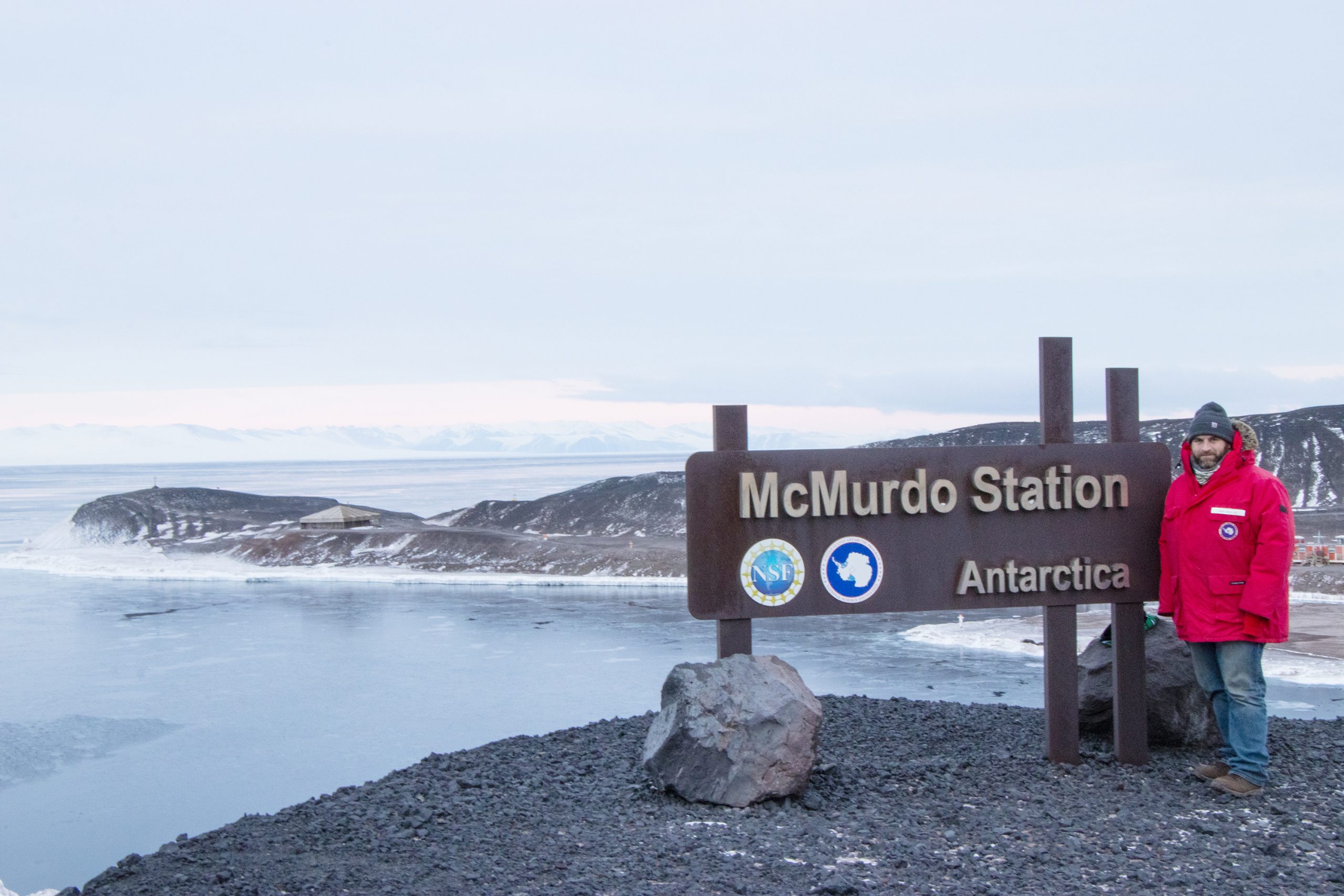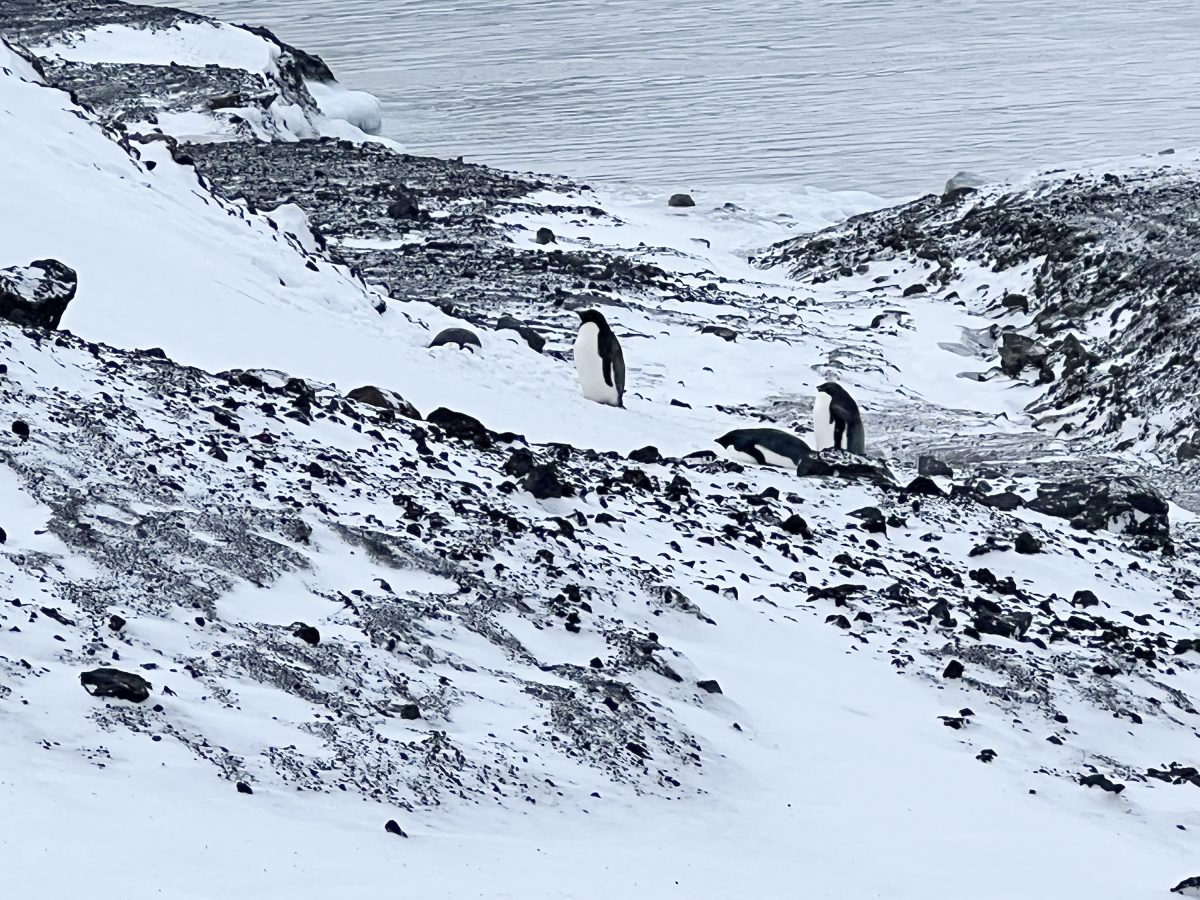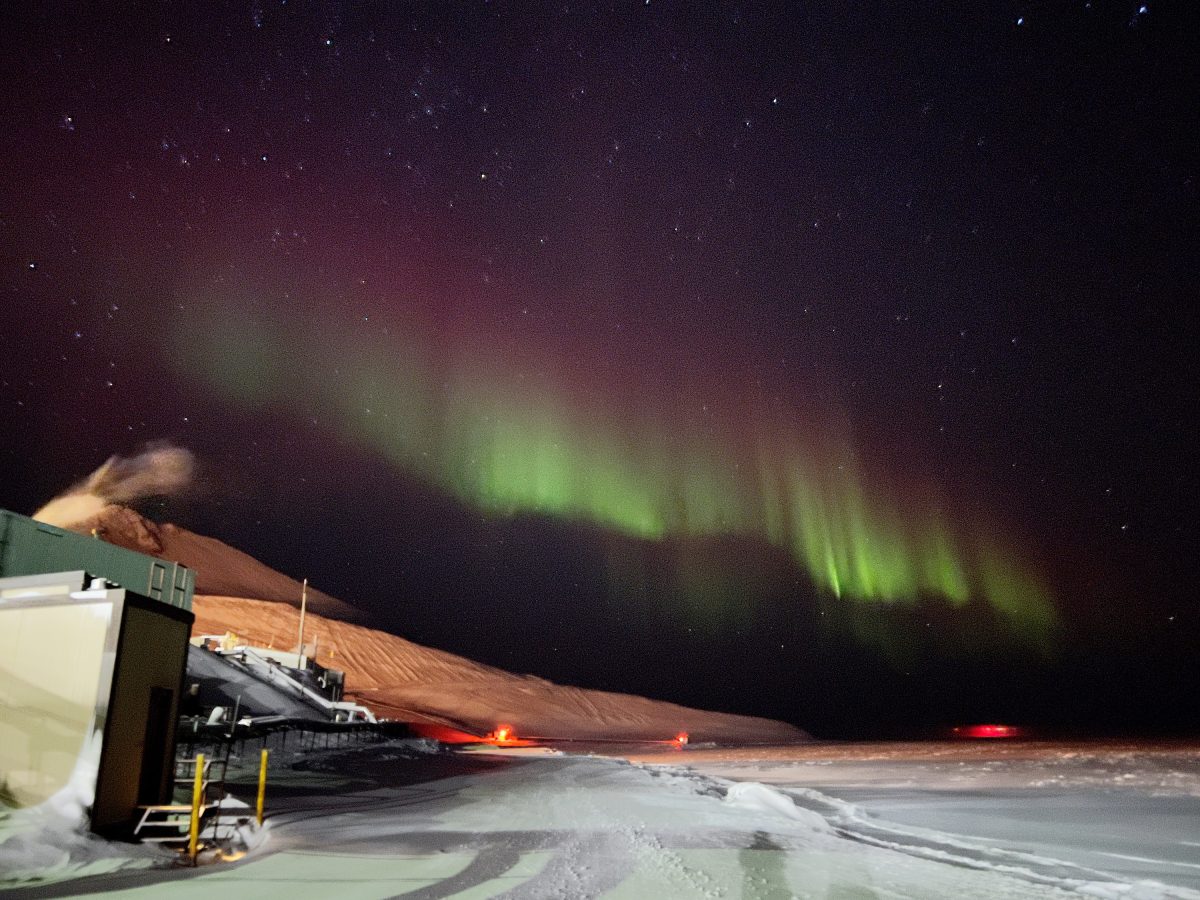
While it’s summertime in Central Minnesota, winter has come to Antarctica. Just ask St. Cloud State University alumnus Tony Abfalter.
Abfalter has been in the southern-most point of the globe since February. A corporate engineer and director of engineering and IT with Leighton Broadcasting in Minnesota, he now handles most of the communications systems at McMurdo Station. Abfalter takes care of two-way radios, paging, wireless connectivity, data, and tower and antenna maintenance — much of the same duties that make up his position back home with Leighton.
“I’m basically a radio nerd,” he said.
The opportunity to work for the United States at the logistical base for its South Pole stations and science field camps came about a few years ago. While he was immediately drawn to the opportunity, Abfalter said he waited for the right time for his family as well as the right time to coordinate with his job. He left Minnesota in January, and after quarantining in Seattle and then New Zealand, arrived at McMurdo Station on Feb. 18. He plans to return home to his wife, their two daughters, and the rest of his family and friends in October, depending on when the weather allows him to fly out.

Abfalter arrived in Antarctica during the continent’s summer season, which means 24 hours of daily sunlight. He found that more difficult to adjust to than the current 24 hours of darkness winter brings to the region. He compared the winter weather to that of Minnesota, and said the minimal daylight during Minnesota winters also helped him adjust to the constant darkness. The darkness also means a constant view of the Milky Way and regular sightings of the aurora australis — the South Pole’s aurora borealis or northern lights. He also enjoys that wintertime means less people on station (about 126 compared to the approximate 1,800 during the summer), which means much better internet connections. Abfalter said the internet bandwidth on location is similar to the kind used in people’s homes — so the more people there are, the slower the speeds. Video calls have to be signed up for ahead of time to ensure a better connection.
While there was some training Abfalter had to complete before starting work at the station, he said the majority was for cold weather awareness — which he likened to “Midwest common sense.” Some of the training was job-related, such as RF or radio frequency safety and learning about any equipment that might differ from Abfalter’s previous job training. A volunteer firefighter with Holdingford Fire Department back home, he is also a part of the search and rescue team at McMurdo. Some of the search and rescue training differed slightly from his work in Holdingford, as Abfalter said it dealt more with wilderness training. Much of what he does at the station involves job skills acquired from hobbies he has pursued.
While he initially attended St. Cloud State’s meteorology program, Abfalter fell more in love with radio engineering through working at KVSC, the campus’s radio station.
“I was already a nerd with a lot of radios,” he said. “It came down to, meteorology is a lot of fun, but radio engineering is a job you can get anywhere, and it opens a lot of doors.”
Abfalter credits St. Cloud State with acting as a “launching pad” for his career, and still pays homage to the University “where it all started” and KVSC through his ham radio call sign: K0VSC. Having grown up in what is now part of Sartell, he said the University has always been an influence in his life, even before he attended.
“It’s more than a great university and college,” he said. “The people are even better.”
He credits St. Cloud State with “starting (his) life adventure,” and said it has played a major part in the different experiences he has had throughout his career, including and especially his work in Antarctica.

“I don’t think you’ve ever really lived until you’ve been to Antarctica,” Abfalter said. “It’s a really cool experience if you’ve got a sense of adventure.”
He said he has gotten caught up in experiencing life down at the South Pole, seeing seals and penguins regularly while hiking and handling the various challenges working in a remote area provides. Abfalter said it has been fun for him to put his skills to the test.
“You can’t just run down to Menard’s and get different parts when something isn’t working,” he said.
His time down south has given Abfalter even more appreciation for his career. He considers his work to be a hobby that St. Cloud State helped him turn into a profession — from the University getting him into radio at KVSC, and then turning that into a career in radio and broadcast engineering, including contract work in places such as Antarctica.
“SCSU means the world to me,” he said. “Ever since I went there, I haven’t worked a day in my life.”
